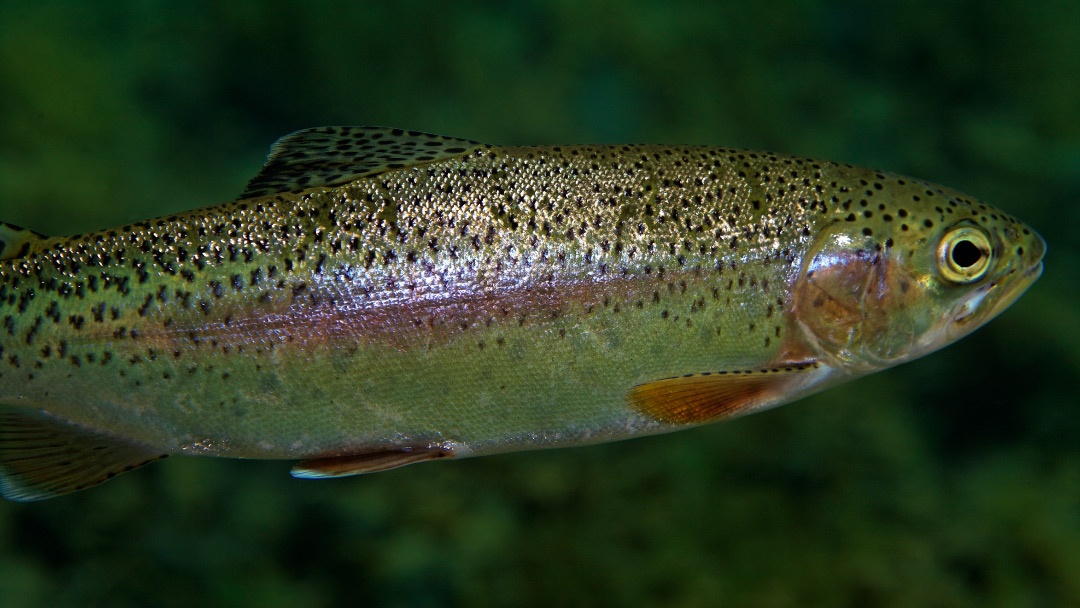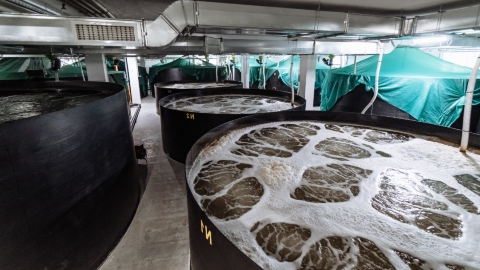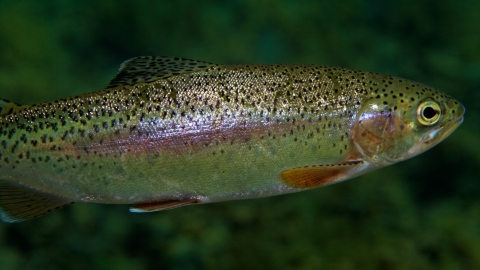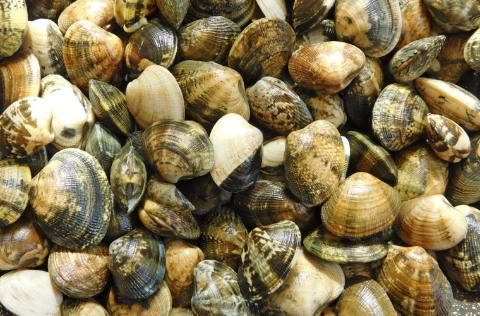
As the aquaculture industry strives to reduce its environmental footprint, the debate over optimal broodstock diets has intensified. Recent research at INRAE’s NuMeA facilities has demonstrated that innovative feeds can complement—or even replace—traditional fishmeal and fish-oil formulations.
Plant-based diets, the study shows, can be successfully fortified with DHA-rich microalgal oil. Yet each approach—conventional fishmeal or novel plant-based—brings distinct advantages and, when deployed wisely, can help producers meet both performance and sustainability goals.
For decades, diets rich in fishmeal and fish oil have underpinned effective broodstock management. Marine-derived ingredients naturally supply essential long-chain omega-3 polyunsaturated fatty acids—particularly docosahexaenoic acid (DHA)—which are crucial for egg quality, larval survival and early growth.
In the NuMeA trial, rainbow trout broodstock fed a commercial fishmeal–fish-oil diet produced fry with an impressive 91.8 per cent survival over the first 30 days—far exceeding that of offspring from alternative regimens—and achieved robust, uniform growth.
Nevertheless, the finite nature of marine resources has driven interest in plant-based alternatives. The “V2” diet tested at NuMeA replaced all fish oil with DHA-rich microalgal oil from Schizochytrium sp., thereby mirroring the marine fatty-acid profile while eliminating wild-capture inputs. Although progeny from this regime recorded slightly lower survival (around 77.6 per cent), they exhibited higher voluntary feed intake and a remarkable ability to compensate for early growth delays when themselves fed plant-only diets—ultimately matching the fishmeal-fed controls in weight gain by day 30.
What truly distinguishes the microalgal-fortified diet is its capacity to “programme” offspring via maternal nutrition. Detailed analyses revealed that fry from DHA-supplemented mothers displayed elevated expression of orexigenic genes, increased neurotransmitter turnover and refined gut–brain hormone signalling—adaptations that sustained vigorous feeding behaviour under fishmeal-free conditions. These physiological adjustments suggest that microalgal DHA not only supplies critical nutrients but also activates developmental pathways that foster resilience on plant-based feeds.
Neither diet is a one-size-fits-all solution. Fishmeal and fish-oil formulations remain the gold standard for maximising early productivity, particularly where broodstock performance is non-negotiable. Yet plant-based, DHA-enriched feeds represent a more sustainable and attractive alternative—delivering near-comparable results while substantially reducing reliance on marine capture fisheries.
Industry stakeholders may therefore adopt a tiered strategy: employing traditional fishmeal and fish-oil diets in high-value breeding programmes, while progressively expanding the use of DHA-fortified plant feeds as these continue to be optimised. Further trials across species and production systems will be essential, but the prospect of combining environmental stewardship with strong performance is clear—ensuring aquaculture can thrive without compromising the future of our oceans.



